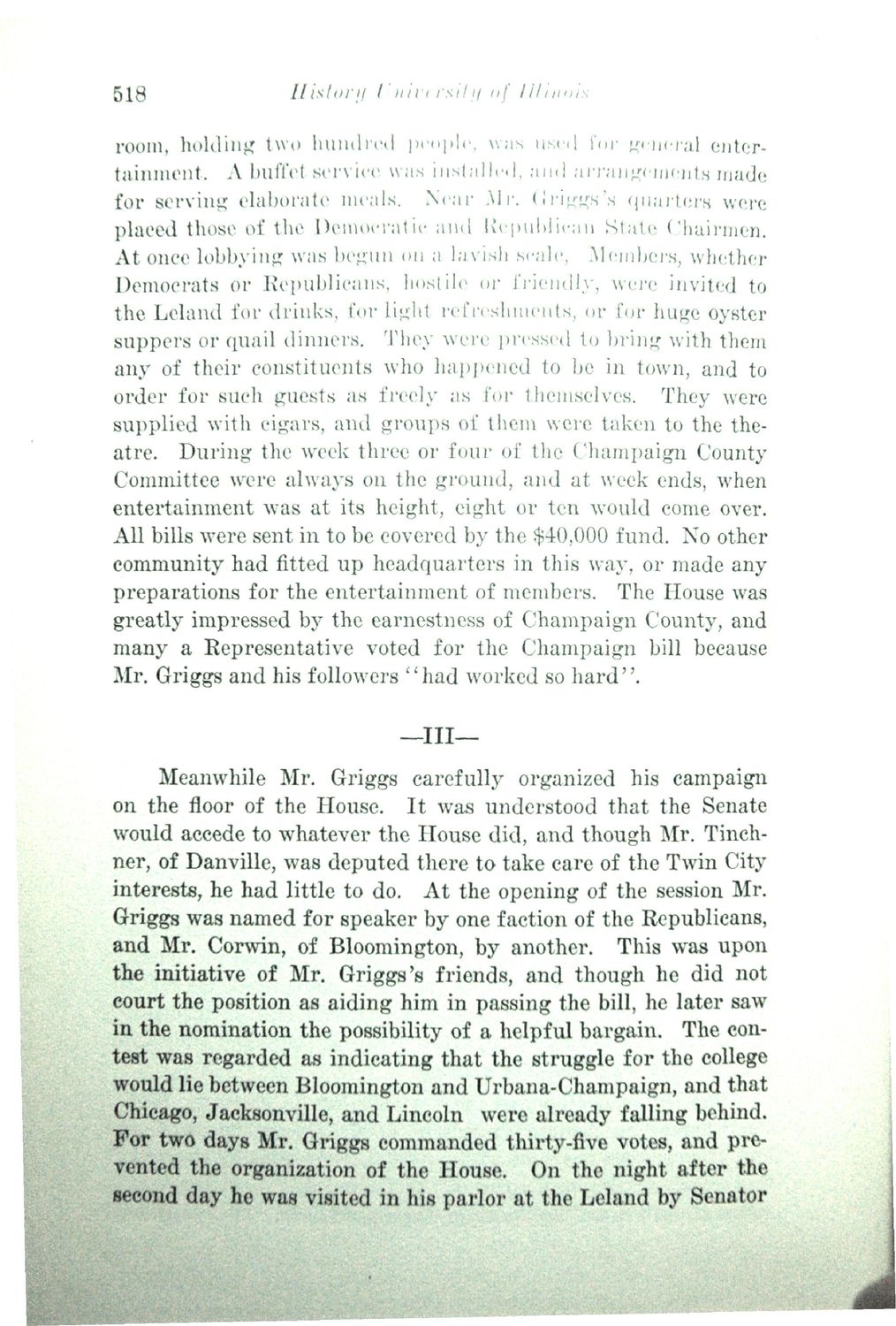| |
| |
Caption: Book - History of the University (Powell)
This is a reduced-resolution page image for fast online browsing.

EXTRACTED TEXT FROM PAGE:
518 History Univcvsiiy of Illinois room, holding two hundred people, was used for general entertainment. A buffet service was installed, and arrangements made for serving elaborate meals. Near Mr. Griggs's quarters were placed those of the Democratic and Republican State Chairmen. At once lobbying was begun on a lavish scale, Members, whether Democrats or Republicans, hostile or friendly, were invited to the Leland for drinks, for light refreshments, or for huge oyster suppers or quail dinners. They were pressed to bring with them any of their constituents who happened to be in town, and to order for such guests as freely as for themselves. They were supplied with cigars, and groups of them were taken to the theatre. During the week three or four of the Champaign County Committee were always on the ground, and at week ends, when entertainment was at its height, eight or ten would come over. All bills were sent in to be covered by the $40,000 fund. No other community had fitted up headquarters in this way, or made any preparations for the entertainment of members. The House was greatly impressed by the earnestness of Champaign County, and many a Representative voted for the Champaign bill because Mr. Griggs and his followers "had worked so hard". —Ill— Meanwhile Mr. Griggs carefully organized his campaign on the floor of the House. It was understood that the Senate would accede to whatever the House did, and though Mr. Tinchner, of Danville, was deputed there to take care of the Twin City interests, he had little to do. At the opening of the session Mr. Griggs was named for speaker by one faction of the Republicans, and Mr. Corwin, of Bloomington, by another. This was upon the initiative of Mr. Griggs's friends, and though he did not court the position as aiding him in passing the bill, he later saw in the nomination the possibility of a helpful bargain. The contest was regarded as indicating that the struggle for the college would lie tffitween Bloomington and Urbana-Champaign, and that Chicago, $§cksonville, and Lincoln were already falling behind. J^rftwo days Mr. Griggs commanded thirty-five votes, and prel ^ t e d the organization of the House. On the night after the iecond day ho was visited in his parlor at the Leland by Senator
| |